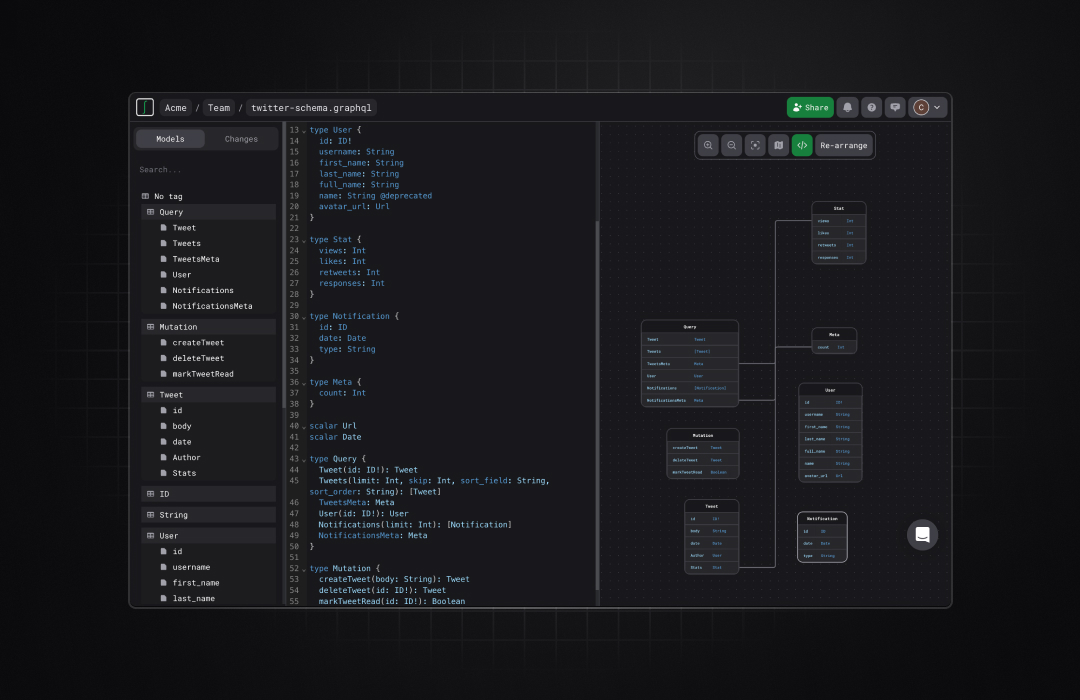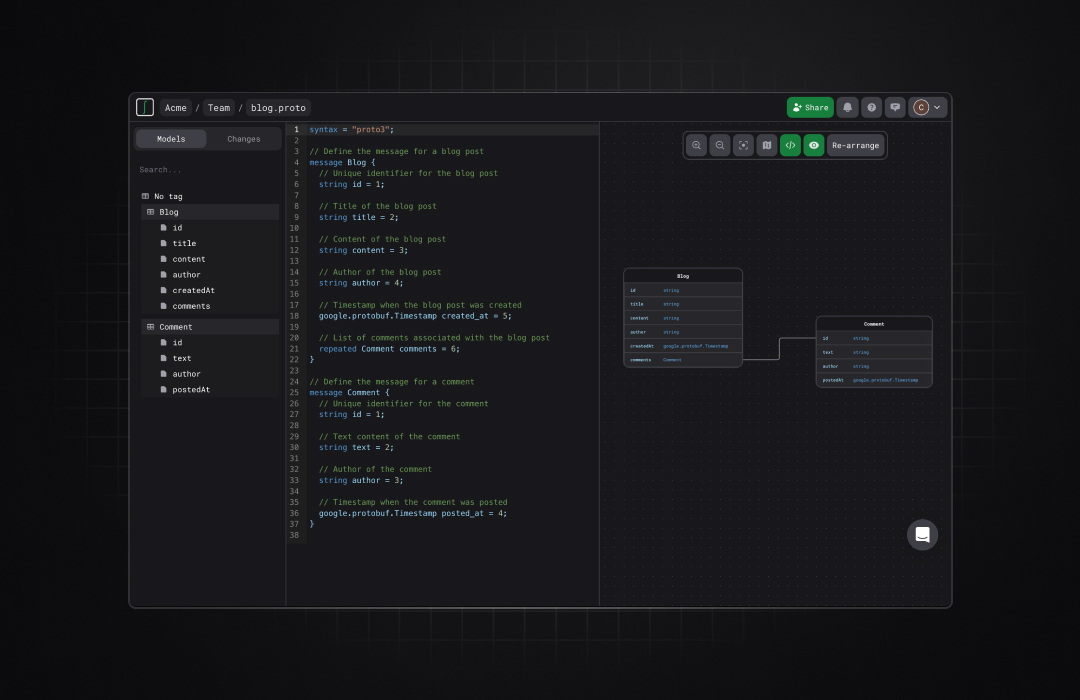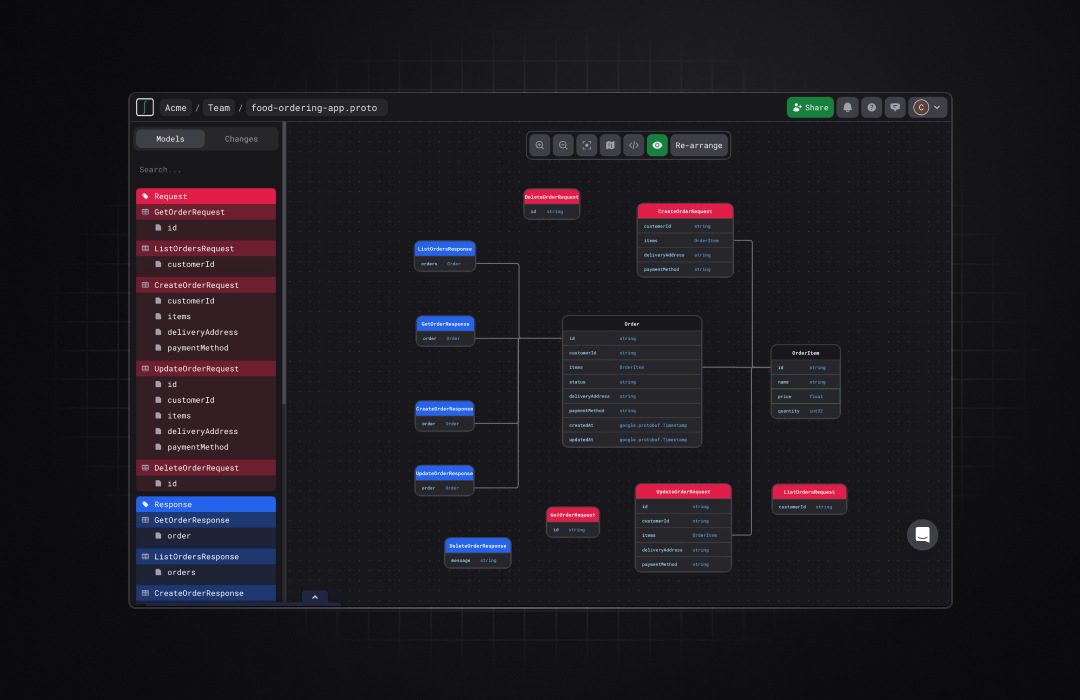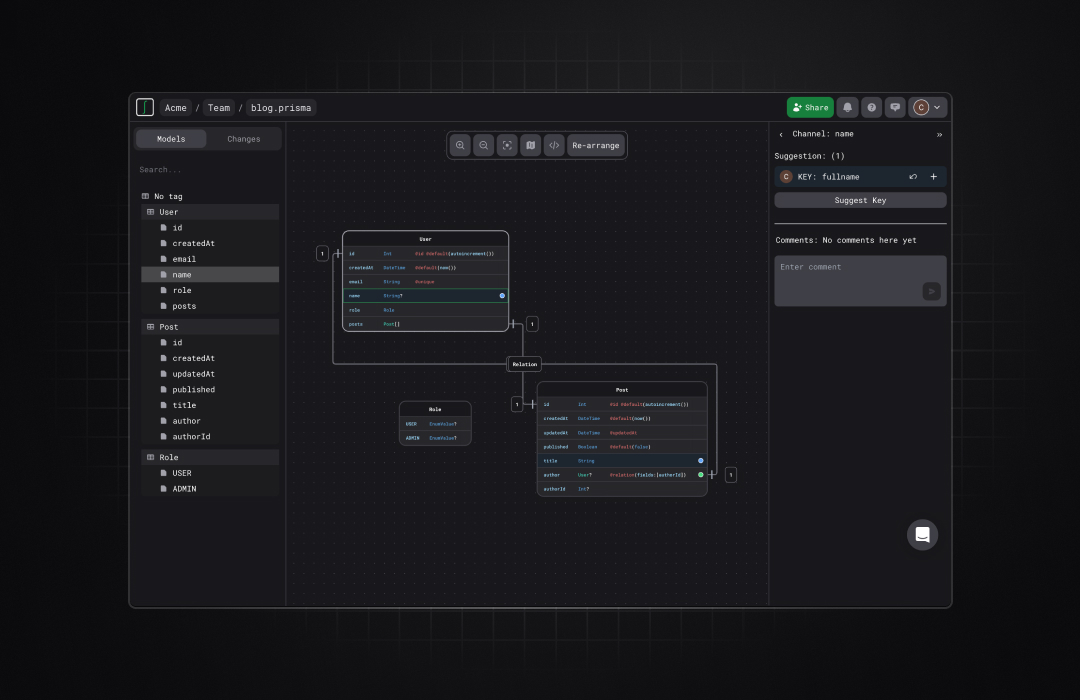Beta release version v0.8
Published: 2023-09-21
Changelog
This new release introduces our first AI-powered feature generating templates to start with, more file support for GraphQL and Protobuf, color-coded model grouping and change suggestions for a better collaboration in teams.
We’re excited to announce several new features coming to version 0.8:
AI-generated data model and API schema templates
We now offer the ability to use OpenAI-powered templates that help you to use AI-generated starting points for your projects.
When creating a new file in Schema Visualizer, you can now select “Ask AI” and describe the app you are building, e.g. “food ordering app” or a reference application such as “Slack”.
We currently integrate with OpenAI to help us generate data models. These models generated can be saved and be used in your Schema Visualizer account as starting points for your next projects.
Ask AI for a data model in either JSON, Prisma, GraphQL and Protobuf file type.
GraphQL Support (experimental)
With the release of version 0.8 we now support GraphQL schema files and its visualization.
We support standard GraphQL schema definition language (SDL) files with definitions for Query and Mutation types.
Visualizing GraphQL schema will help you to collaborate in the case of modifications, for example to discuss breaking changes or conducting an impact analysis when iterating over your GraphQL API schema.

Future releases will include the support for additional GraphQL features such as Scalars, Directives and Variables in both visualization and no-code suggestions.
Furthermore, we are working on introspection and local development support to visualize your schemas in your familiar environments using a CLI or GraphQL plugin.
Ready to try now? Sign in to Schema Visualizer
Protobuf support (experimental)
In our latest release we also now offering Protobuf file support. This enables you to turn your Protobuf definitions into a graphical representation.

The Protobuf standard, created by Google, has become a popular way to define structured data in a language-agnostic way.
Schema Visualizer will automatically generate a graph from single Protobuf message definitions files.
In upcoming releases, we aim to provide multi-file support that will allow you to group or combine several files into a single visualization.
At this point, we do not yet support imports or custom definitions beyond standard types. However, this feature is on our list of upcoming improvements.
Color-coded grouping with labels
You can now use labels to group your entities into groups by attaching a color-coded label to them.
By using this new Feature, you can apply labels to several entities at once, such as grouping your data models and API types by domain, service, or owner.
The labels are color-coded in the visualization helping with more concise and appealing documentation.

Suggestions
We are introducing suggestions to help teams working with both technical and non-technical contributors, as well as external parties requiring permissions to make changes.
With suggestions, you can enable your collaborators to review and suggest changes to your field types, keys or values depending on the file you are working on within Schema Visualizer.
We offer suggestions for all file types available in Schema Visualizer that can also be accepted and directly applied to the source code to keep visualization and code in sync.

Suggestions are available to certain permission levels only, attached to a specific user making a suggestion and can be either accepted or discarded.
Thank you for taking the time to read our latest changelog post.
We're excited about the improvements and updates we've made, and we can't wait to hear your thoughts and feedback.
--------
Ready to get started? - Join Schema Visualizer
If you like our product and want to be part of the discussion, we invite you to join our Discord community. These are the perfect places to connect with fellow users, share your ideas, report any issues you encounter, and stay up-to-date with the latest developments.
Click on the link below to join our Discord server and become a part of our community: Join Our Discord
Additionally, we invite you to connect with us on LinkedIn for more networking and updates. Follow our LinkedIn page to stay informed about our company's news, job opportunities, and industry insights. Connect with us on LinkedIn
We value your input, and your participation will help us make our product even better. Let's build software together!
We look forward to seeing you in our app, Discord or LinkedIn.